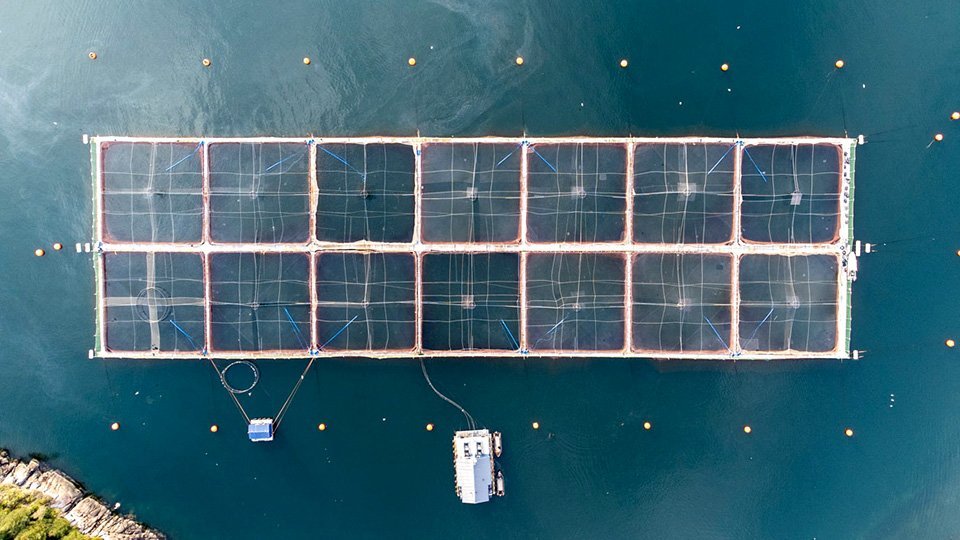Salmon Aquaculture in Chile: Problems and Challenges
As the world's second-largest salmon-producing country, Chile's aquaculture industry contributes significant export revenue to the national economy. However, beneath this façade of prosperity, the Chilean salmon farming industry faces a series of serious underlying challenges, particularly technical challenges such as wind and wave conditions and cage anchoring. These issues not only threaten the sustainable development of the industry but also have profound impacts on marine ecosystems and local communities.
1. Environmental Issues: Disruption of Ecological Balance
Chilean salmon farming is primarily concentrated in the southern fjords, where high-density cage farming has led to serious environmental problems. First, large amounts of fish waste and feed residues generated during the farming process are deposited on the seabed, causing eutrophication, which in turn leads to localized hypoxia and damage to benthic ecosystems. Second, escapes from farmed salmon are frequent. These non-native species compete with wild fish for resources and even hybridize, disrupting the genetic diversity of wild populations. Furthermore, the high use of antibiotics in Chilean farmed salmon leads to the spread of residual drugs through the water, potentially exacerbating the problem of antimicrobial resistance in marine microorganisms.
2. Wind and Waves and Cage Securing: Technical Challenges and Risks
The waters off southern Chile are subject to severe wind and wave conditions, often impacted by strong winds and high waves. This poses a significant challenge to the stability of cage systems. Many farms use cages and anchoring systems that are not adequately adapted to this environment, leading to the following issues:
- Cage Structural Fatigue: The continuous impact of strong winds and waves accelerates the aging and fatigue of cage materials, increasing the risk of structural failure.
- Inadequate Anchoring System Reliability: Some anchoring designs are unable to withstand the drag of extreme winds and waves, potentially causing cages to shift or break, leading to fish escapes.
- Difficulties in Monitoring and Maintenance: Inclement weather conditions make it difficult to effectively monitor and maintain cage systems in real time, further increasing operational risks.

3. Spread of Disease and Parasites
High-density aquaculture creates a breeding ground for the spread of disease and parasites. Sea lice are a major concern in Chilean salmon farming. This parasite not only harms the health of farmed fish but can also spread to wild populations, posing a threat to local ecosystems. Although aquaculture companies have attempted to use chemical pesticides to control sea lice, overreliance on these drugs has led to the development of parasite resistance, creating a vicious cycle.
4. Social and Economic Conflicts
The expansion of salmon aquaculture has sparked conflicts with local communities. Many residents in southern Chile rely on traditional fishing for their livelihoods, and the water pollution and ecosystem damage caused by aquaculture directly impact their livelihoods. Furthermore, large-scale aquaculture cages occupy traditional fishing grounds, shrinking the operating areas of small-scale fishermen and further exacerbating social inequality.
5. Regulatory and Technical Challenges
Although the Chilean government has strengthened its regulation of aquaculture in recent years, enforcement remains insufficient. Some companies, driven by profit, ignore environmental regulations, resulting in poor site selection and excessive cage density. Furthermore, the harsh wind and wave conditions in Chile's fjords necessitate high technical requirements for cages and anchoring systems. However, some aquaculture facilities fail to meet wind and wave resistance standards, increasing the risk of accidents.
6. Market and Reputational Risks
As global consumers increasingly prioritize sustainable seafood, environmental issues with Chilean salmon aquaculture could impact its international reputation. For example, European and American markets increasingly emphasize environmental certifications in aquaculture, while Chilean salmon may face trade barriers and consumer boycotts due to issues such as antibiotic use and ecological impacts.
Conclusion: The Path to Sustainable Development
The potential challenges in Chile's salmon aquaculture industry highlight the profound contradiction between economic development and environmental protection. To address these issues, Chile needs to further strengthen regulations, promote low-carbon, low-antibiotic aquaculture techniques, and explore innovative models such as offshore aquaculture. Furthermore, collaboration with local communities and obtaining international certification will be key to the industry's sustainable development. Only through multifaceted efforts can Chilean salmon aquaculture achieve long-term prosperity while protecting precious marine ecosystems.
SMEOCEAN: Aquaculture Anchor Chain Mooring System Experts
As a professional aquaculture anchor chain expert, SMEOCEAN has been researching anchor systems for deep-sea aquaculture and how they can withstand the brunt of wind and waves. This presents the greatest opportunity and challenge for marine aquaculture today. If you require a manual on marine aquaculture of Norwegian and Chilean salmon, please contact us today.


